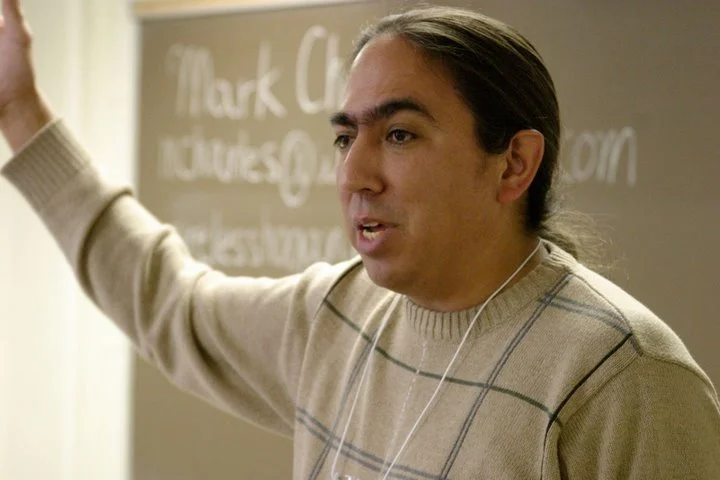A Space of Healing
01-10-2017
By Noah Kruis
In September, my friend, Mark Charles, spoke and preached at McCormick. I’m reminded of his words about American History from a Native perspective, especially in the wake of this vitriolic US presidential election season. Mark’s careful analysis points bluntly to the fact that the founding of the United States of America is based in systemic racism.
From the church’s Doctrine of Discovery that justified the taking of land and enslavement of non-European people, to the Declaration of Independence, which refers to “Merciless Indian Savages” just 30 lines below “All men are created equal,” to Supreme Court decisions about land rights, this nation has been built on the dehumanization of people of color.
With this in mind, as difficult to hear president elect Trump commit to “Make America Great Again,” Clinton’s claim that the United States continues to be as great as it always has been was also disturbing. Whatever greatness the United States has accomplished has been done at the cost of countless lives of people at the margins. The racial disparities that exist in our nation today indicate that this legacy continues to negatively impact generations of people of color.
Mark goes on to suggest that collectively, white people cannot be unscathed by 500 years of inflicting dominance and oppression. The act of terrorizing others takes a toll on the psyche of the abuser as well. I recently participated in a webinar offered by “Everyday Feminism;” the host likened this to the way our misogynist society conditions men to be out of touch with their emotions. Denying feelings is a coping mechanism for inflicting pain on another person, but it numbs men and white folks to their own humanity.
This is not to say that all white folks are evil. Rather it is white supremacy that is evil and it has power to tear us all down. Without recognizing the power of white supremacy, white folks have a tendency to shut down and either deny their personal responsibility or wallow in guilt.
So what alternatives do we have? Mark suggests that the church has a unique opportunity to face these realities. As seminarians, we’re familiar with the theological and liturgical importance of lament, however too often lament is packaged as a short responsive reading in the scope of a longer worship service that quickly moves on to resolution.
The church, Mark argues, does not spend enough time in lament for God to meet us there. He recommends a season of lament, which will involve identifying and naming historical and ongoing injustice whenever we gather. Our worship at McCormick this season began with a sermon by President Yamada on the importance of lament.
I want to encourage us to continue in that space, and to bring our worshipping communities into it as well. The season of advent, as the days grow shorter and drearier and we await the coming light of Christ, is an appropriate time to lament the racism in our country and its sinister impact on our lives, people of color and white folks alike. Our collective cries will reach the ears of our liberative God who says: “I’ve heard their cries of injustice…I know about their pain. I will come down to rescue them” (Ex 3:7,8 CEB).
Noah Kruis is a second-year student interested in continuing the educational and healing work of fighting racism and white supremacy. He is excited to share with our community that there will be an, “Analyzing Systemic Racism 2.5 day training offered by Chicago Regional Organizing for Antiracism at Fourth Presbyterian Church on January 26-28, 2017.”
“The first ten students to register here will attend for free. When registering indicate ‘McCormick Theological Seminary’ as your organization and choose the ‘Pay at the Door’ option. If you have questions about the training or the registration process, don’t hesitate to contact me.”


